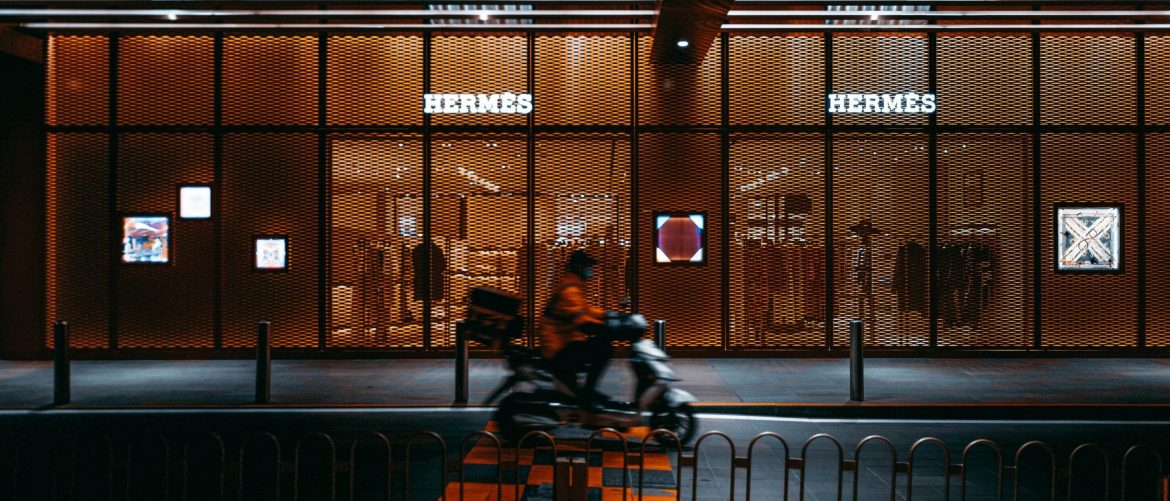The global luxury industry is bracing for its longest downturn in more than two decades, as Donald Trump’s sweeping new tariffs fuel concerns of a worldwide recession.
Hopes that affluent Americans might prop up the struggling sector are fading, with Wall Street analysts warning of sliding sales and profits across the $400-billion-a-year industry.
European countries, home to the majority of luxury brands, face a 20% tariff on exports to the US.
Goods from the United Kingdom and Switzerland have been hit with 10% and 31% tariffs respectively, sending shockwaves through boardrooms from Paris to Geneva.
Bernstein analyst Luca Solca has sharply downgraded his forecast for global luxury sales, predicting a 2% decline this year instead of the previously expected 5% growth.
If realised, this would mark the sector’s most prolonged slump since the early 2000s.
“Uncertainty, and the likely continuing rout in stock markets, are creating a self-fulfilling prophecy: a global recession,” Solca warned in a note to clients.
Affluent consumers tighten purse strings as markets tumble
While the new tariffs will raise costs for imported luxury goods in the US, the larger threat is the potential for a severe global downturn and sharp corrections in financial markets.
High-net-worth consumers are typically more insulated from recessions, but sustained losses in their investment portfolios could see them cut back on discretionary spending.
Solca now expects the sector’s average earnings before interest and taxes to fall by between 4% and 6% compared to 2024 levels.
However, luxury brands may be better positioned than mass-market companies to manage the tariff shock.
Most luxury houses manufacture in Europe rather than Asia, and they have long navigated export levies to the US.
Some industry insiders believe the incremental cost could be manageable.
Even if the new tariffs are stacked on top of existing duties, the impact on pricing could be relatively minor.
Since tariffs are applied to the wholesale price—generally around 20% of the retail price—brands could offset the increases by raising prices by less than 4%, according to Solca.
This is lower than the usual 5% to 7% annual price hikes many luxury brands have implemented in recent years.
Why Richemont and Hermes stand out
Among the luxury sector, Cartier-owner Richemont and French luxury giant Hermes are standing out as stocks with potential to weather the storm well, analysts say, owing to their strong brand equity and pricing power.
Oliver Chen, an analyst at TD Cowen said his top pick in the luxury sector is Swiss conglomerate Compagnie Financière Richemont, the owner of Cartier, Van Cleef & Arpels, and Montblanc.
Chen said jewellery could prove to be a more resilient category in the near term, and highlighted that Cartier and Van Cleef have not raised prices as aggressively as other luxury brands over the past two years, preserving a “strong price-to-value proposition.”
That restraint could create room for price increases down the line.
Richemont shares, listed on the Swiss stock exchange, have dropped by more than 12% in the last five days.
Citi’s Thomas Chauvet also backs Richemont, citing its pure-play focus on luxury as a strength that should support pricing power.
He similarly recommends Hermès, pointing out that the brand benefits from lower exposure to US sales compared to other luxury peers.
Hermès shares remain expensive, however, trading at 46.7 times projected earnings for the next 12 months.
Richemont, by contrast, trades at a more modest 20.4 times. Both stocks, though, are trading below their respective five-year averages of 50 for Hermès and 23.8 for Richemont.
Jefferies analysts believe Hermès is well-positioned to outperform its peers, thanks in part to its superior pricing power.
In a research note, they describe the French luxury house as a relative safe haven amid a tougher environment for the sector, with demand softening in the critical US market since mid-February and uncertainties over Trump’s proposed tariffs.
“As we look into a highly uncertain future, we maintain a relative preference for Hermès,” the analysts write.
Jefferies forecasts organic net sales growth of 8.2% for the company in the first quarter.
The post Why analysts are betting on Richemont and Hermes stocks as Trump tariffs take sheen off the luxury sector appeared first on Invezz

